The 21st edition of the Prémio BIAL de Medicina Clínica award ceremony took place on 12 February in the Aula Magna of the Faculty of Medicine of the University of Lisbon. The ceremony was chaired by the President of the Portuguese Republic, Marcelo Rebelo de Sousa, and attended by the Secretary of State for Science, Ana Paiva, and the Secretary of State for Health, Ana Povo. Manuel Sobrinho Simões' speech on “BIAL Award 40 years: the past and the future of Medicine” was the event's highlight.
Neuroradiologist and researcher Tiago Gil Oliveira was the winner of the Prémio BIAL de Medicina Clínica 2024, with the work ‘Uncovering the mysteries of brain regional susceptibility to neurodegeneration in Alzheimer's disease: from neuropathology to brain magnetic resonance imaging’, which identifies the brain regions differentially affected by Alzheimer's disease, contributing to a more accurate and earlier diagnosis of what is the most prevalent neurodegenerative pathology in Portugal and worldwide.
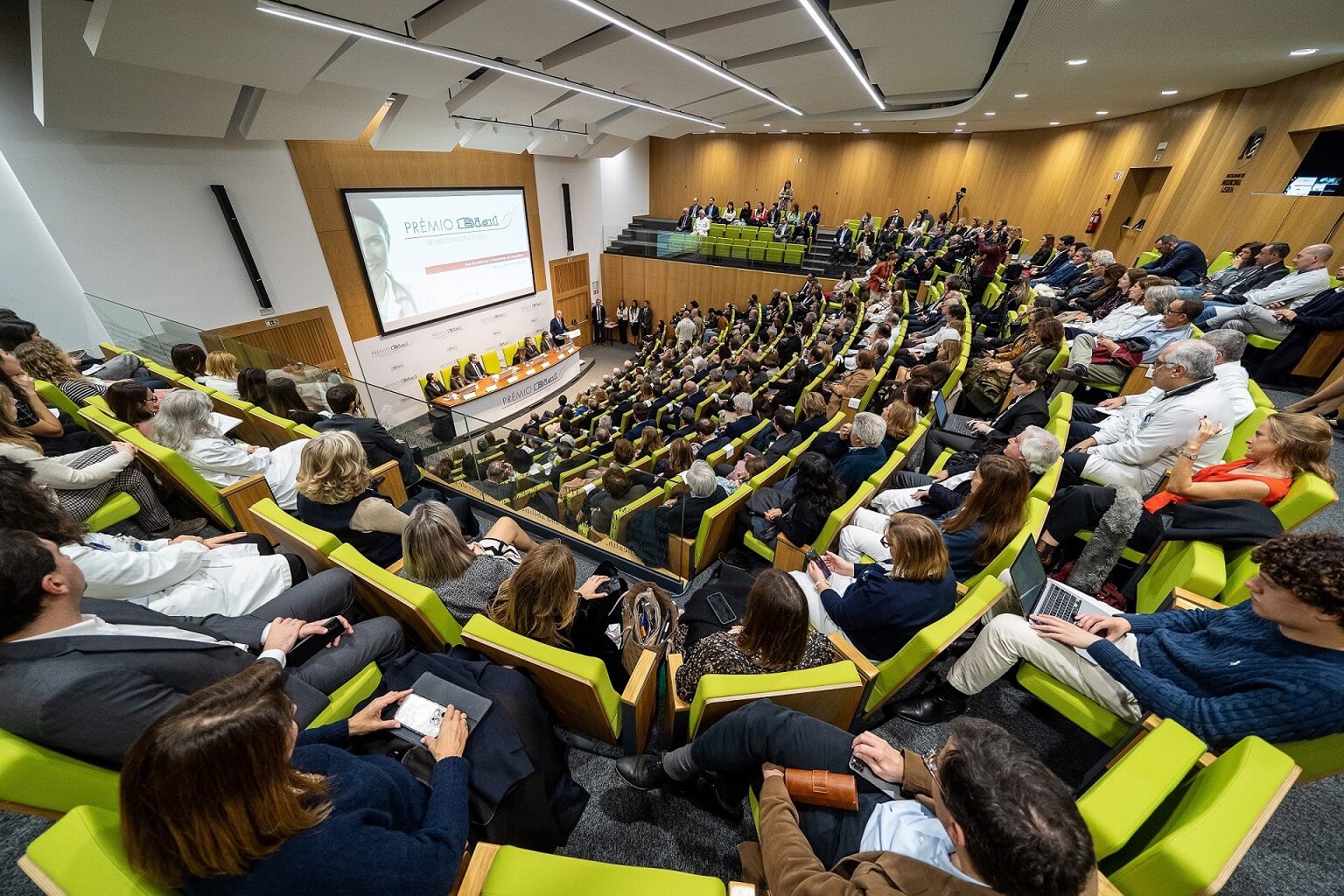

Luís Abegão Pinto, Joana Tavares Ferreira and Quirina Tavares Ferreira authored the work ‘Screening & eye examination centre using AI resources’, awarded an Honourable Mention, which proposes the implementation of proximity eye care, using innovative technologies such as Artificial Intelligence, to reduce by around half the risk of blindness from glaucoma, a disease that affects around 200,000 Portuguese.
Also in the field of ophthalmology, José Paulo Andrade and Ângela Carneiro authored the work ‘Age-related Macular Degeneration - The leading cause of irreversible blindness in Portugal’, which received an Honourable Mention and could have a significant impact on the lives and health of the Portuguese by helping to prevent and treat Age-related macular degeneration (AMD), which is the leading cause of irreversible blindness in Portugal.
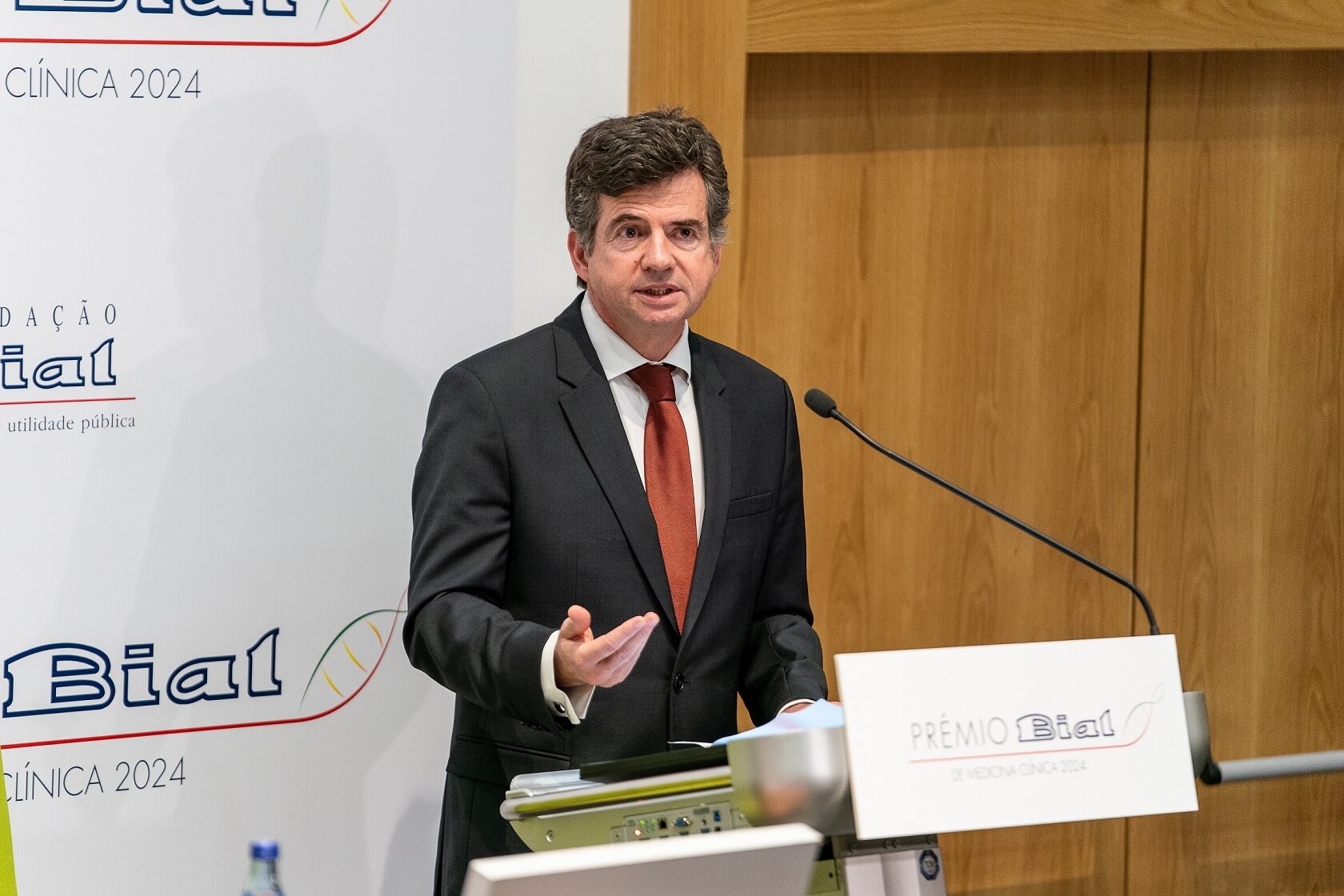

In addition to the closing speech by the President of the Portuguese Republic, Marcelo Rebelo de Sousa, the ceremony included speeches by the Dean of the Faculty of Medicine of the University of Lisbon, João Eurico da Fonseca, the Chairman of the BIAL Foundation, Luís Portela, and the President of the Jury, José Melo Cristino. Manuel Sobrinho Simões, who has chaired the jury for four editions of the Prémio BIAL de Medicina Clínica (2006, 2018, 2020 and 2022), presented his vision for ‘BIAL Award 40 years: the past and the future of Medicine’.
‘Forty years ago, I became fixated on the Prémio BIAL because it was a demonstration that it was possible in Portugal to make an award that had different characteristics,’ said the prestigious pathologist, recalling the previous presidents of the Jury and the extraordinary works that have been honoured over the four decades of the Awards existence. Paula Coutinho, Maria de Sousa, Mário Dinis Ribeiro, Alexandre Castro Caldas and Miguel Castelo-Branco were some authors Manuel Sobrinho Simões highlighted in his speech.
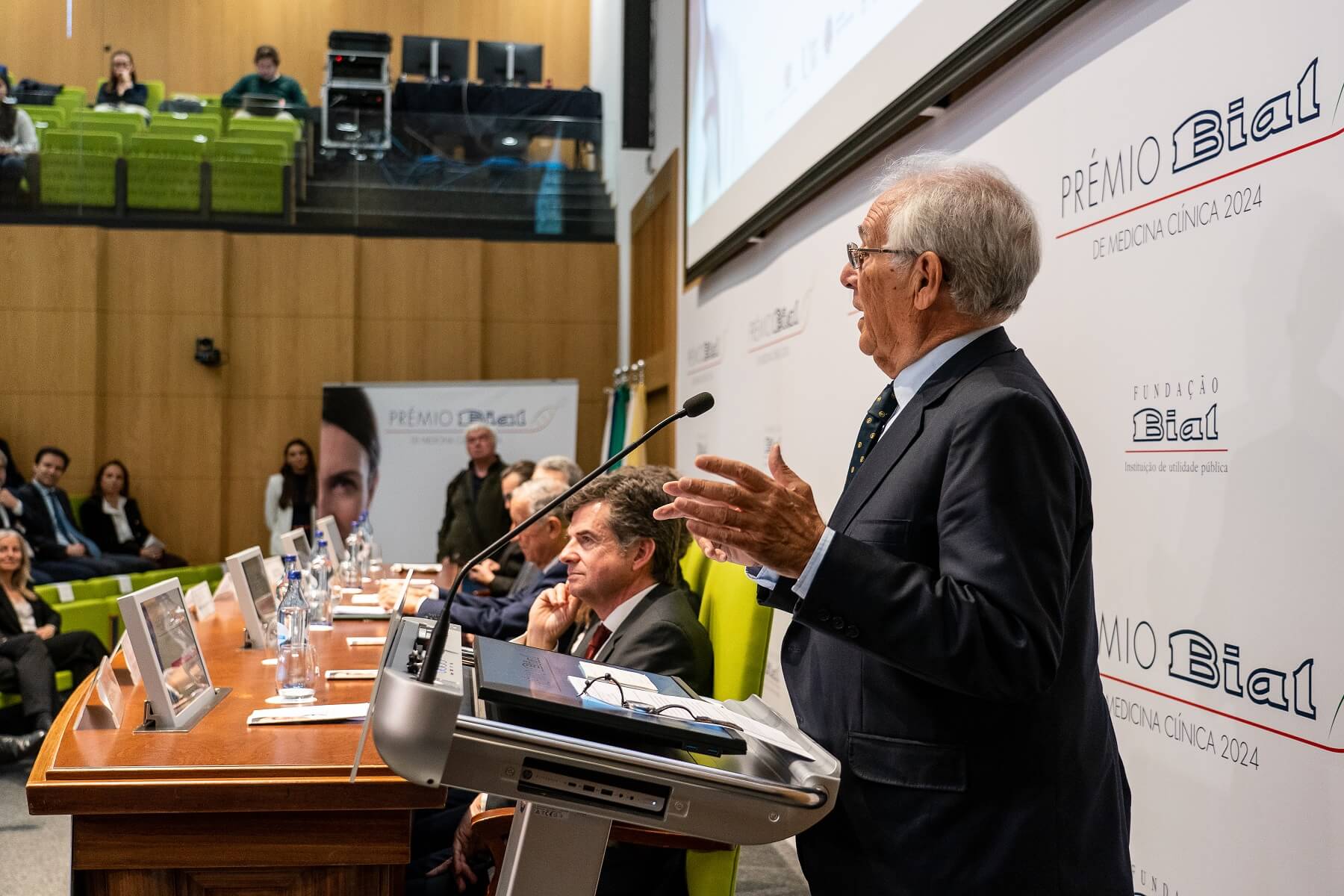
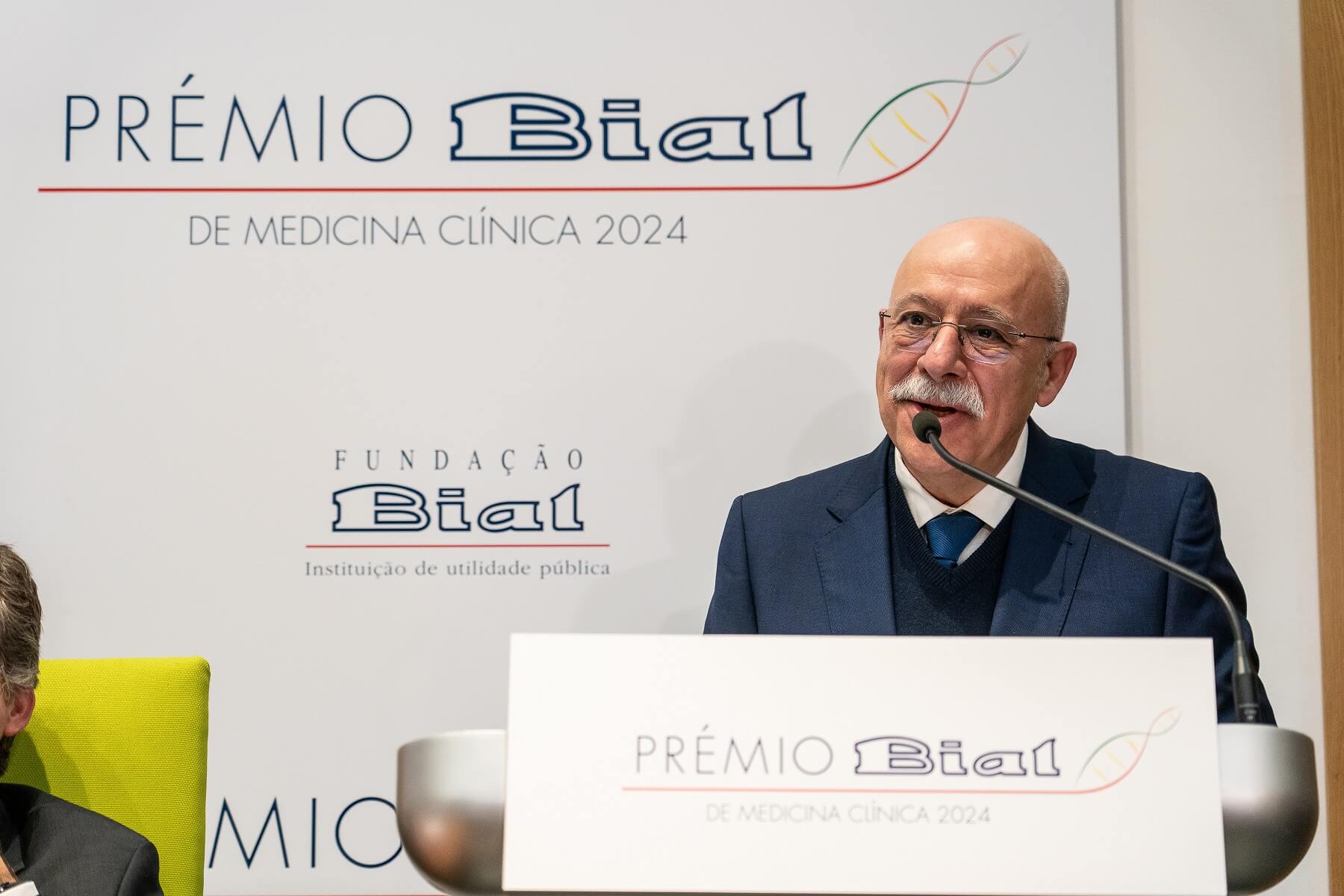
Tiago Gil Oliveira wins the Prémio BIAL de Medicina Clínica with research that paves the way to a more accurate and earlier diagnosis of Alzheimer's disease
The winning work of the Prémio BIAL de Medicina Clínica 2024, awarded 100,000 Euro, presents the mapping of changes in the brains of patients with Alzheimer's disease, carried out using magnetic resonance imaging and rodent models, to understand the molecular changes underlying regional brain pathologies.
Research has revealed that certain regions of the brain are affected differently by the various toxic proteins responsible for Alzheimer's disease (AD). These toxic proteins, such as beta-amyloid, compromise normal brain function and cause symptoms such as short-term memory loss and spatial disorientation. By understanding how each type of toxic protein affects each region of the brain and by being able to map the composition of these affected regions, this research helps pave the way for earlier diagnosis and better treatments for what is the most prevalent degenerative disease in Portugal and worldwide.
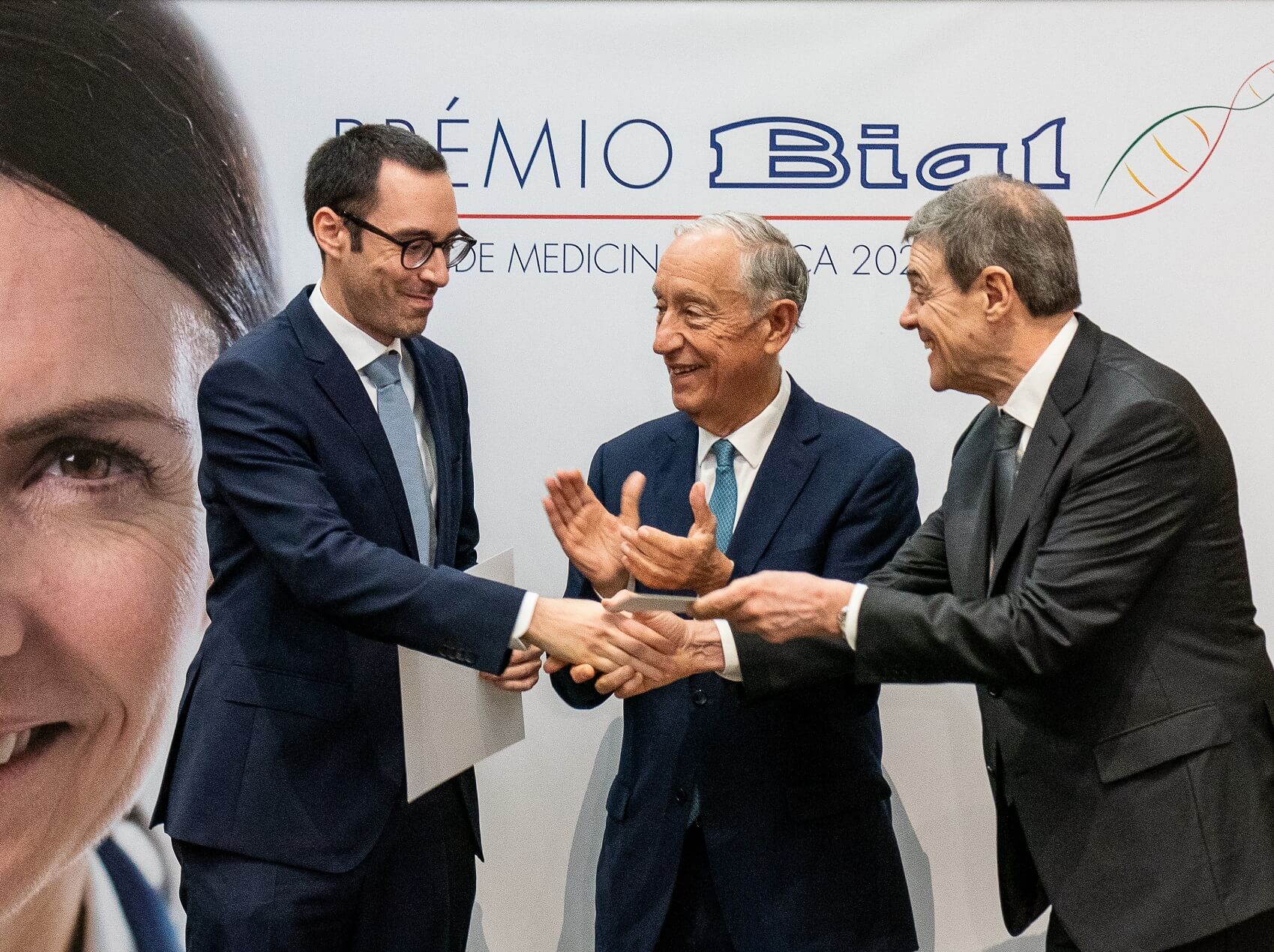
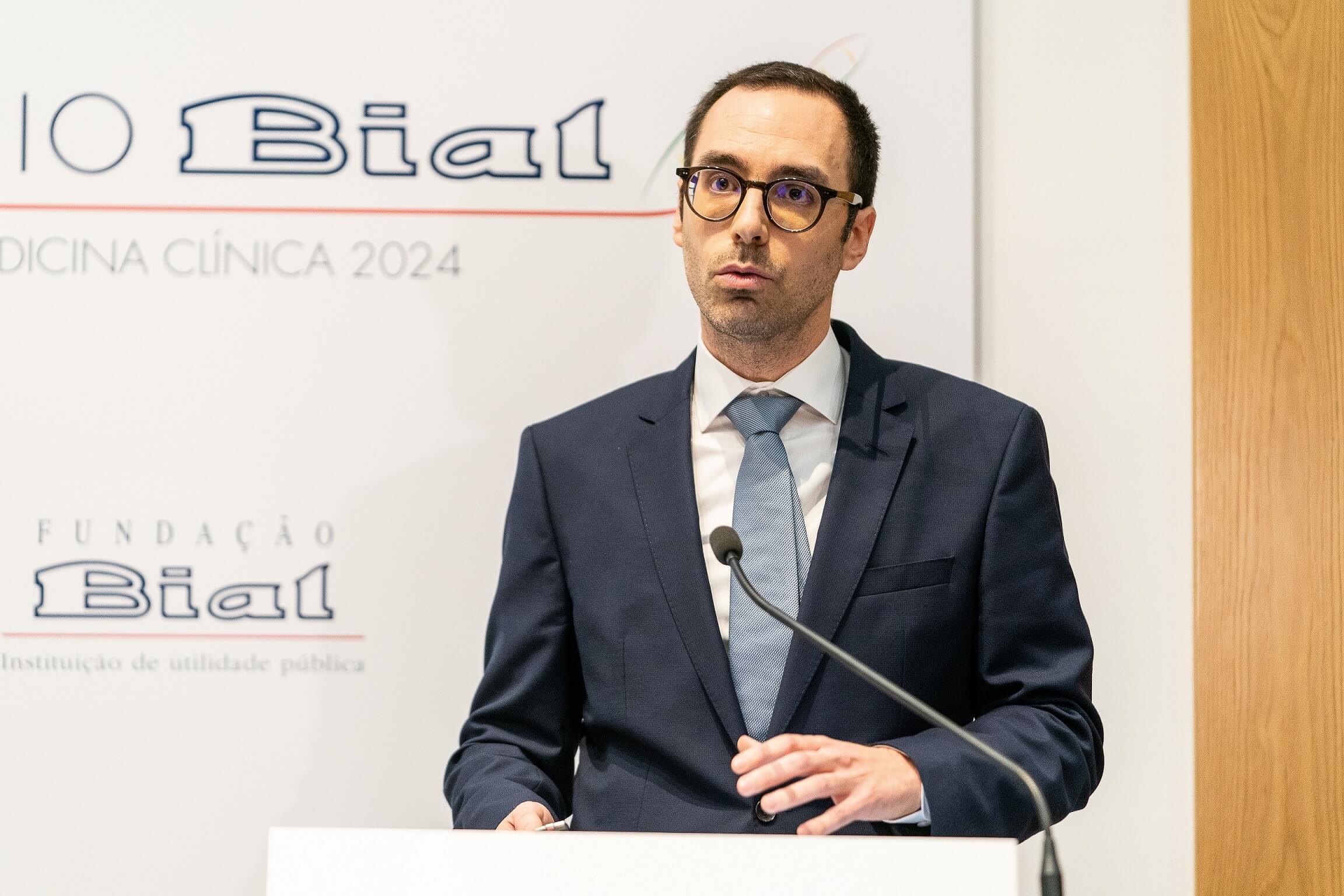
“The main objective of this study, focused on identifying the brain regions that are differentially affected, is to contribute to a more accurate and earlier diagnosis of AD. In addition, with the potential introduction into clinical practice in Portugal of new antibody therapies targeting beta-amyloid accumulations, this work also highlights that there is a great diversity of other pathologies affecting the brains of AD patients, contributing to more targeted treatments”, explains the winner Tiago Gil Oliveira, associate professor at the School of Medicine of the University of Minho, neuroradiologist at Braga Hospital and principal investigator at the Life and Health Sciences Research Institute (ICVS).
For the President of the Jury, “the award-winning research combines fundamental science with clinical practice in a remarkable way, providing valuable information for the diagnosis and potential treatment of AD”. José Melo Cristino also emphasises that “works like these not only contribute to the advancement of knowledge but also inspire those who want to combine medical practice with scientific research”.
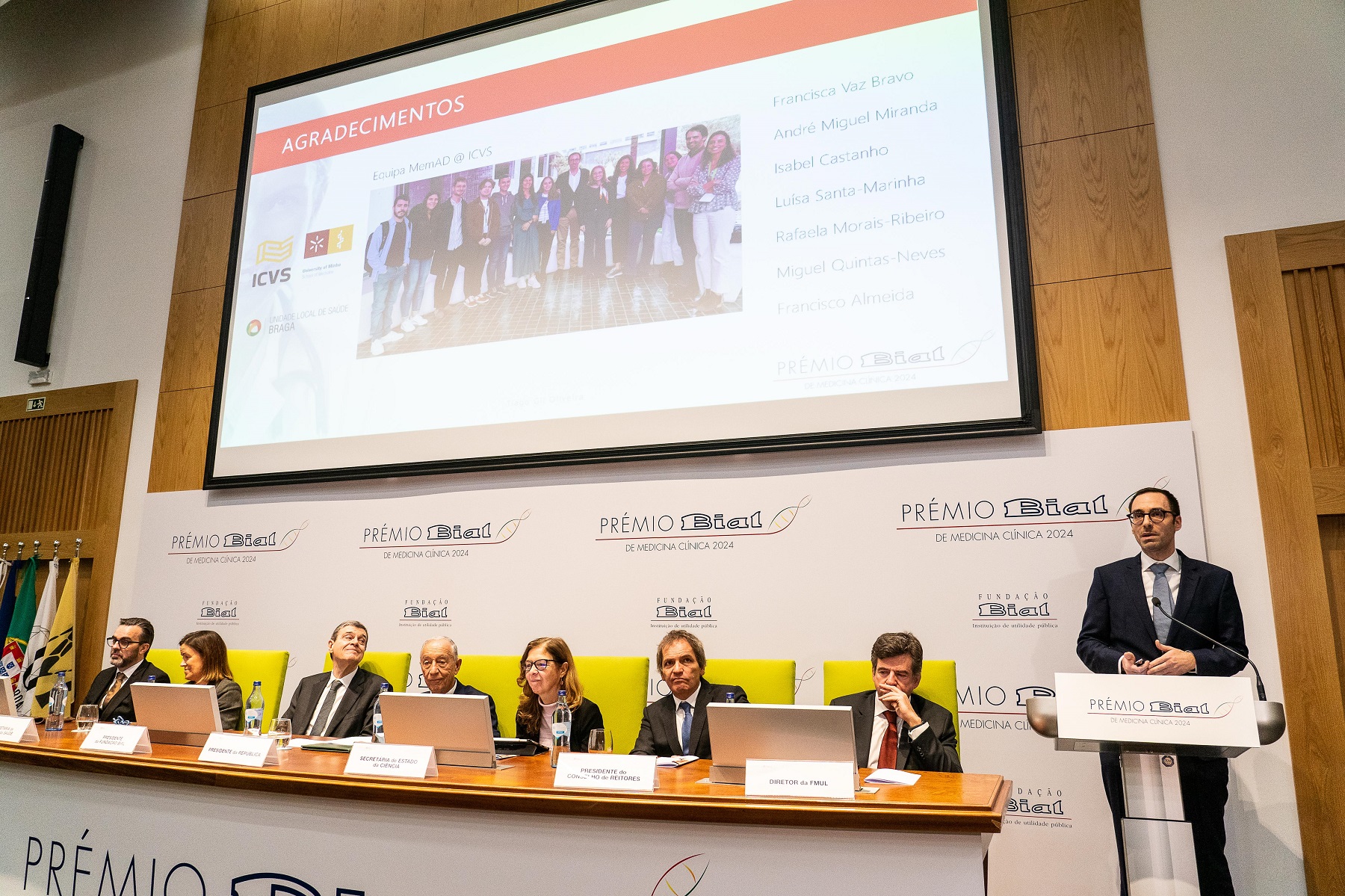
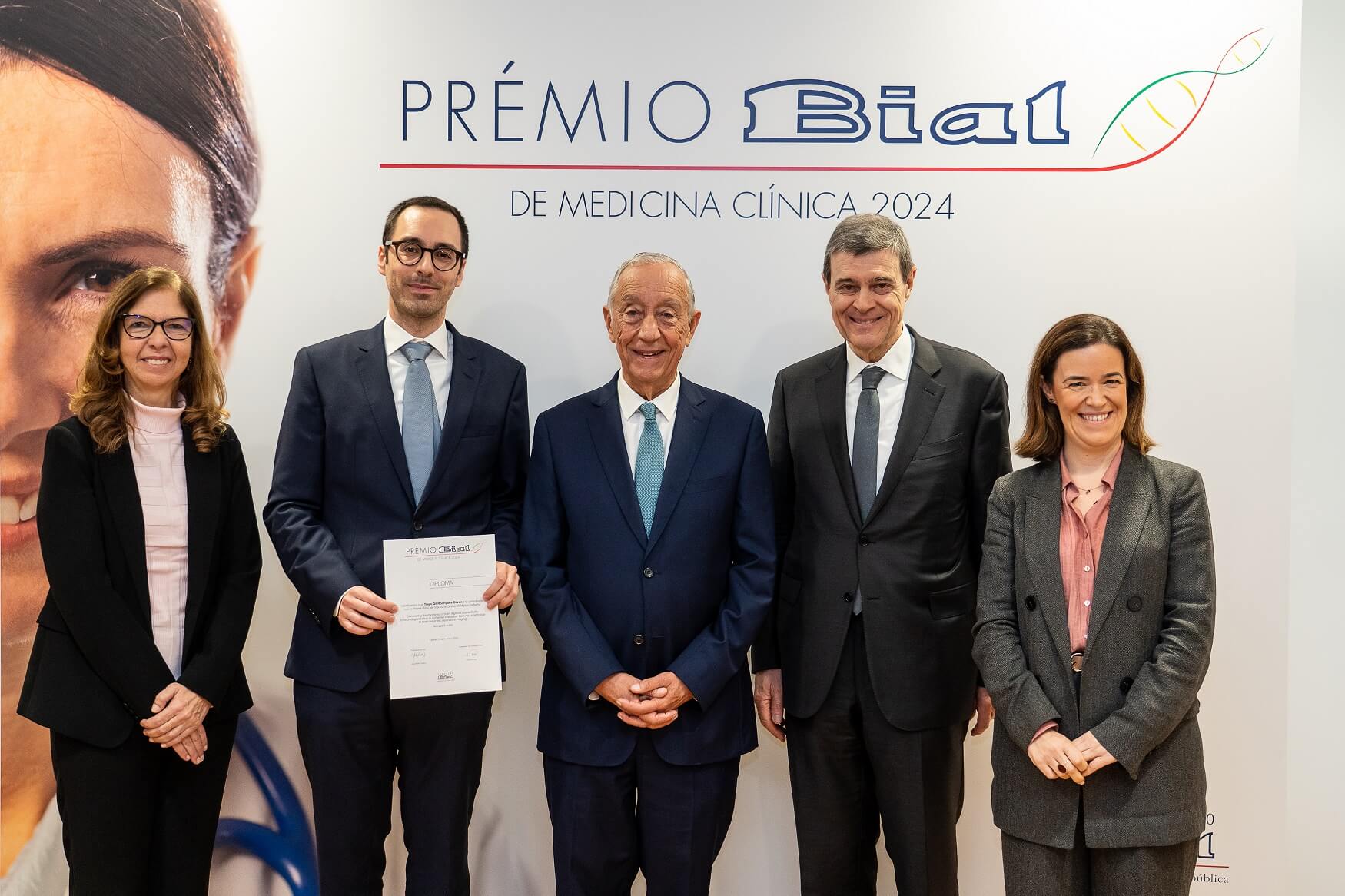
Luís Portela, Chairman of the BIAL Foundation, recalls the award's “ongoing commitment to scientific excellence and encouraging medical research that contributes to significant advances in human health”.
The jury for the Prémio BIAL de Medicina Clínica 2024 also decided to award two Honourable Mentions, each worth 10,000 Euro. José Melo Cristino reveals that “two works were honoured, in the field of ophthalmology, which focuses on diseases that affect thousands of people in Portugal and can cause irreversible blindness”.
An Honourable Mention to an innovative model for screening ophthalmological diseases using AI
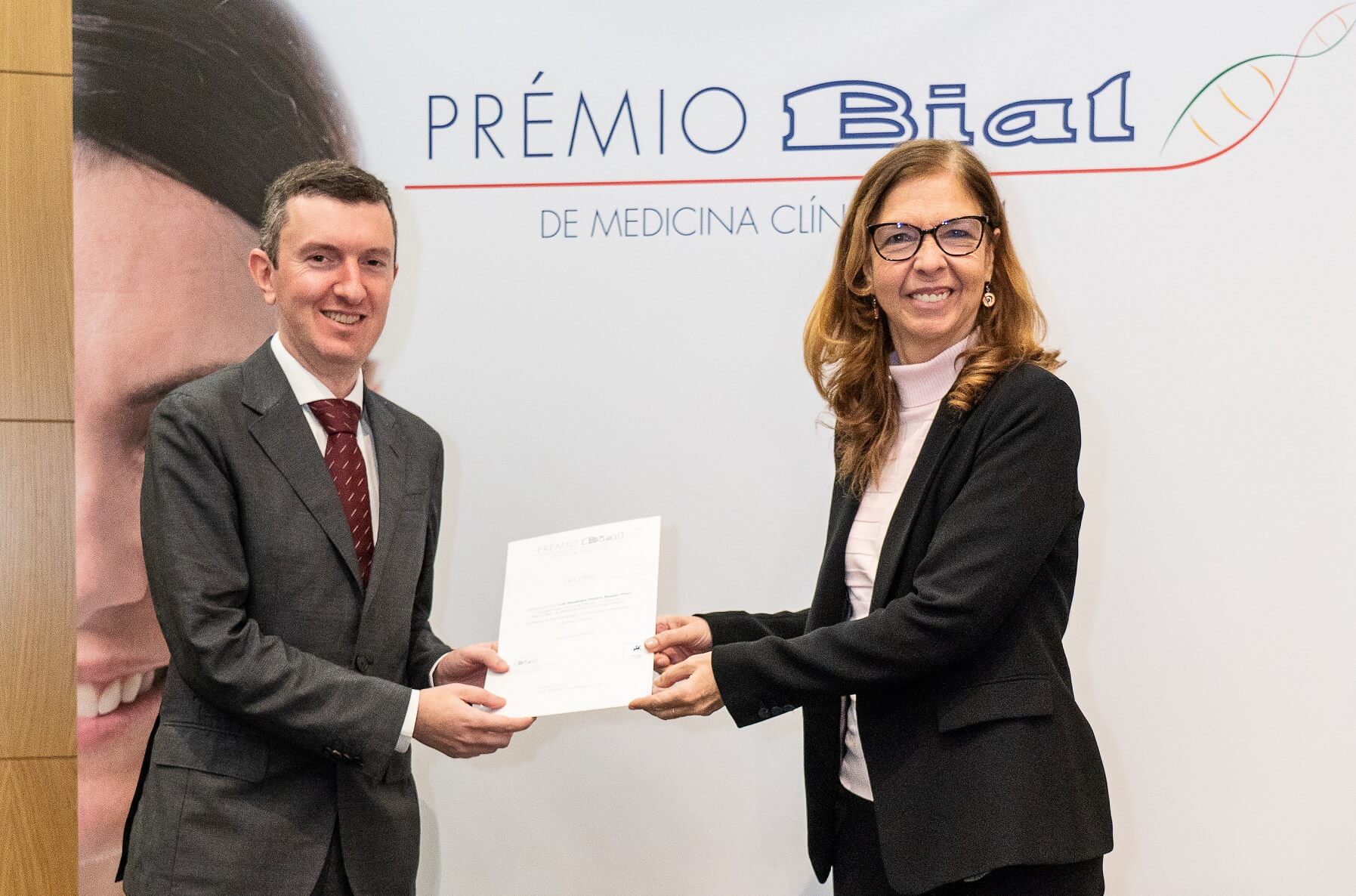
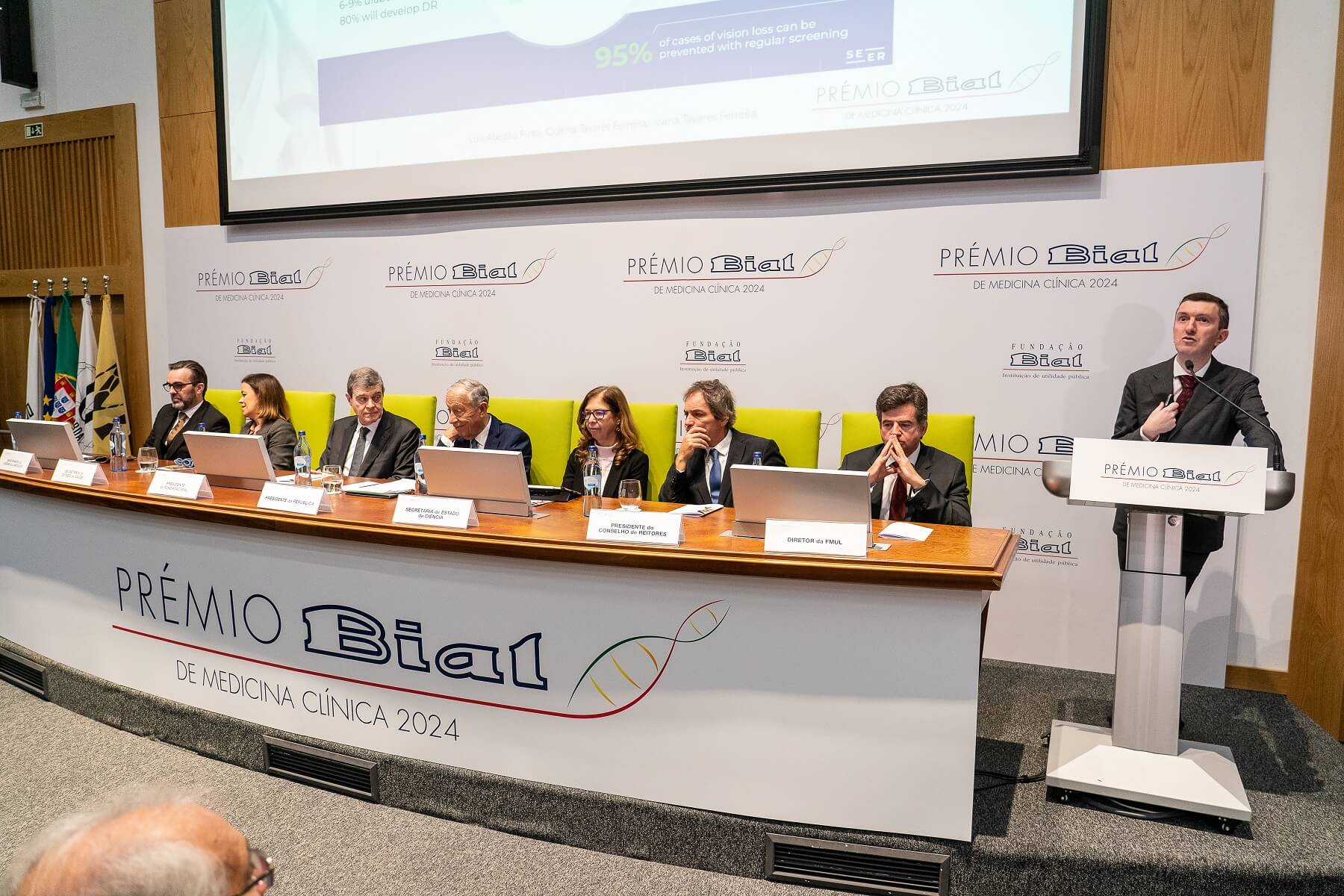
Distinguished with an Honourable Mention, the work ‘Screening & Eye Examination Centre using AI resources (SEER)’, by Luís Abegão Pinto, Joana Tavares Ferreira, and Quirina Tavares Ferreira (Faculty of Medicine of the University of Lisbon and ULS Santa Maria), proposes an innovative model for screening eye diseases, such as glaucoma and diabetic retinopathy, using Artificial Intelligence (AI).
Through a simple photograph, the system can identify early signs of eye disease, allowing patients to be referred for specialised treatment quickly and effectively. SEER, which will be implemented in a pilot centre at Pulido Valente Hospital, has demonstrated an efficiency rate of 90% in detecting eye diseases, with a high cost-benefit potential.
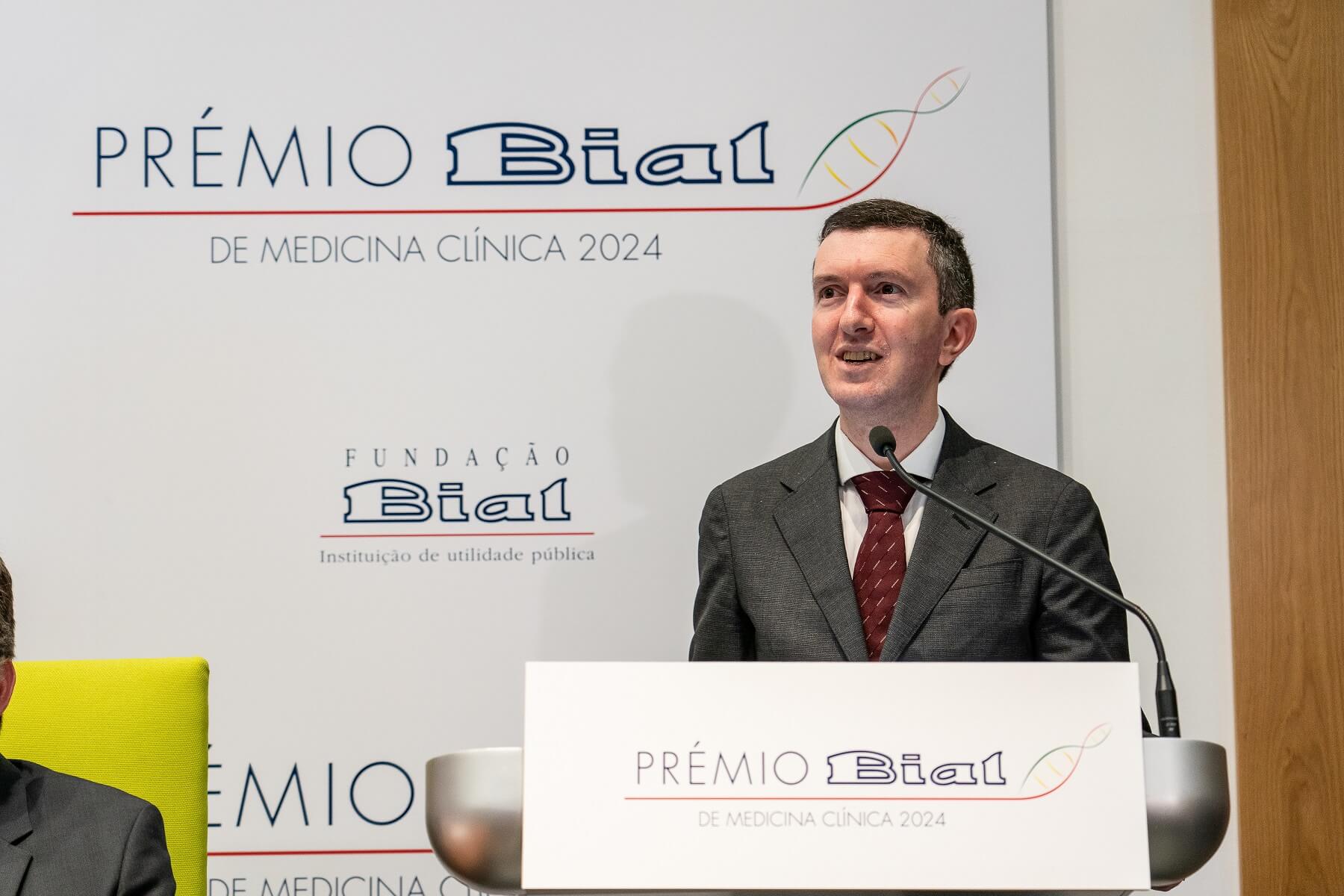
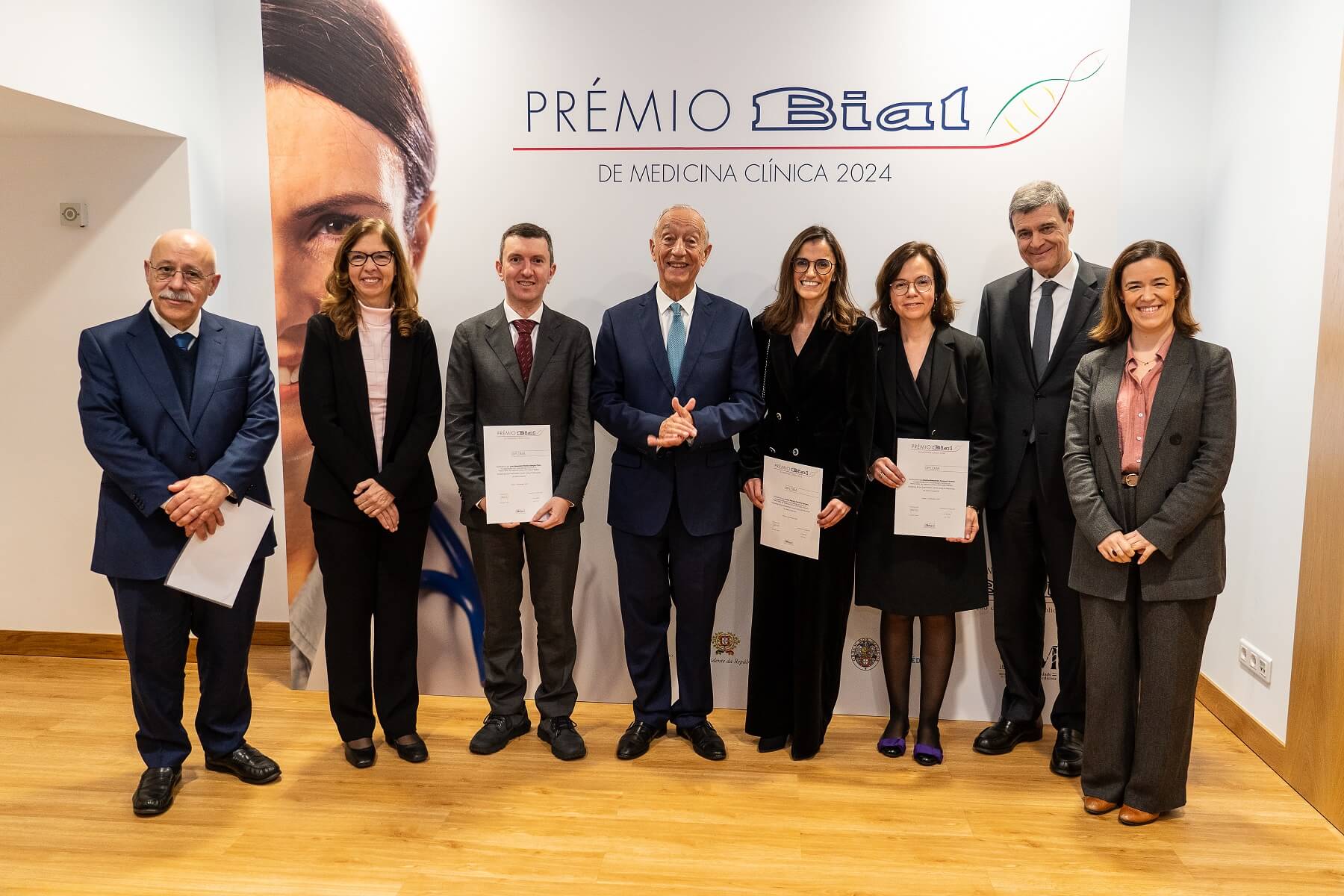
Asked about the impact this work could have on the lives and health of the Portuguese, Luís Abegão Pinto emphasised that “the implementation of local eye care, with the use of innovative technologies such as AI, will make it possible to reduce the risk of blindness from glaucoma by around half”. This disease, which affects around 200,000 Portuguese and is still thought to be underdiagnosed by 50 per cent, is the leading cause of irreversible blindness in the world.
The expansion of this model to other regions of the country could revolutionise access to eye care, especially in areas with less medical coverage. By enabling earlier diagnosis and more effective treatment, SEER aims to help improve the quality of life of thousands of people and reduce the pressure on health services.
Work on Age-related Macular Degeneration awarded Honourable Mention
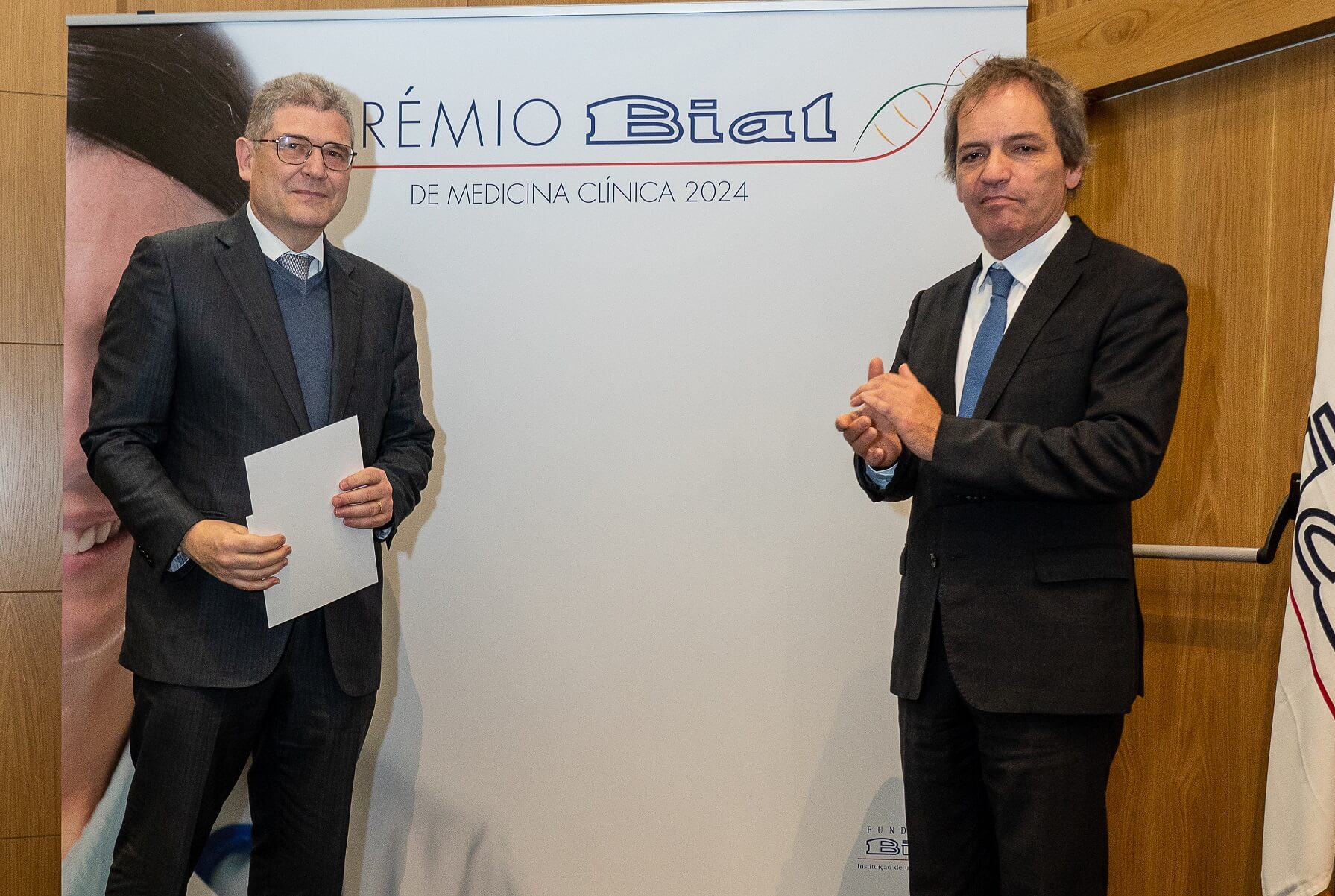
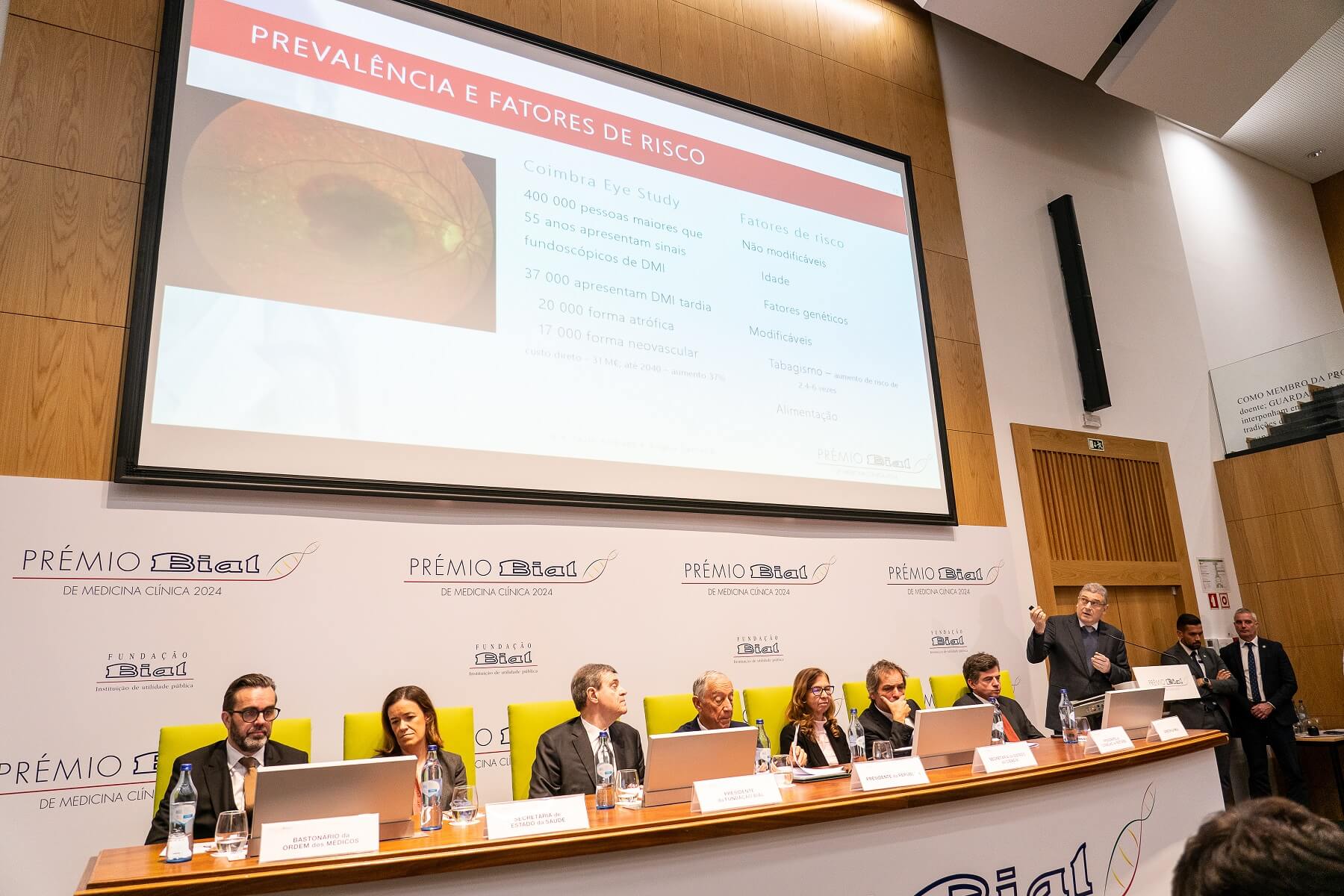
The jury also awarded an Honourable Mention to the work “Age-related Macular Degeneration - The Leading Cause of Irreversible Blindness in Portugal”, by José Paulo Andrade and Ângela Carneiro (Faculty of Medicine of the University of Porto and ULS São João). The research aims to minimise the impact of age-related macular degeneration (AMD) on the Portuguese population, which affects approximately 400,000 people after the age of 55.
AMD usually appears after the age of 55 and worsens over time. If left untreated, it can lead to severe vision loss, especially in older people. The aim of this work is to explain how this disease can be discovered in time, how it can be treated and, most importantly, how to prevent it from getting worse.
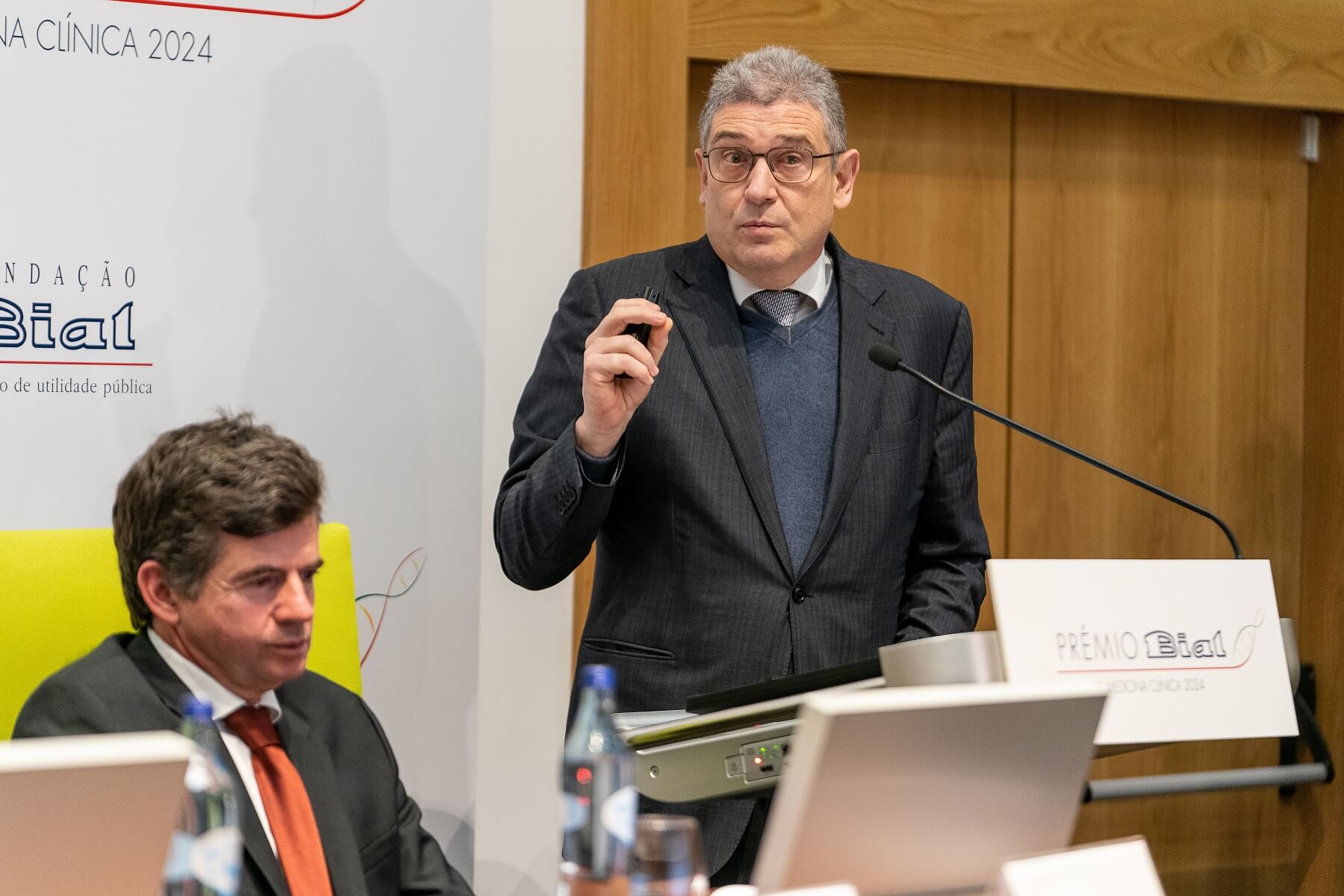
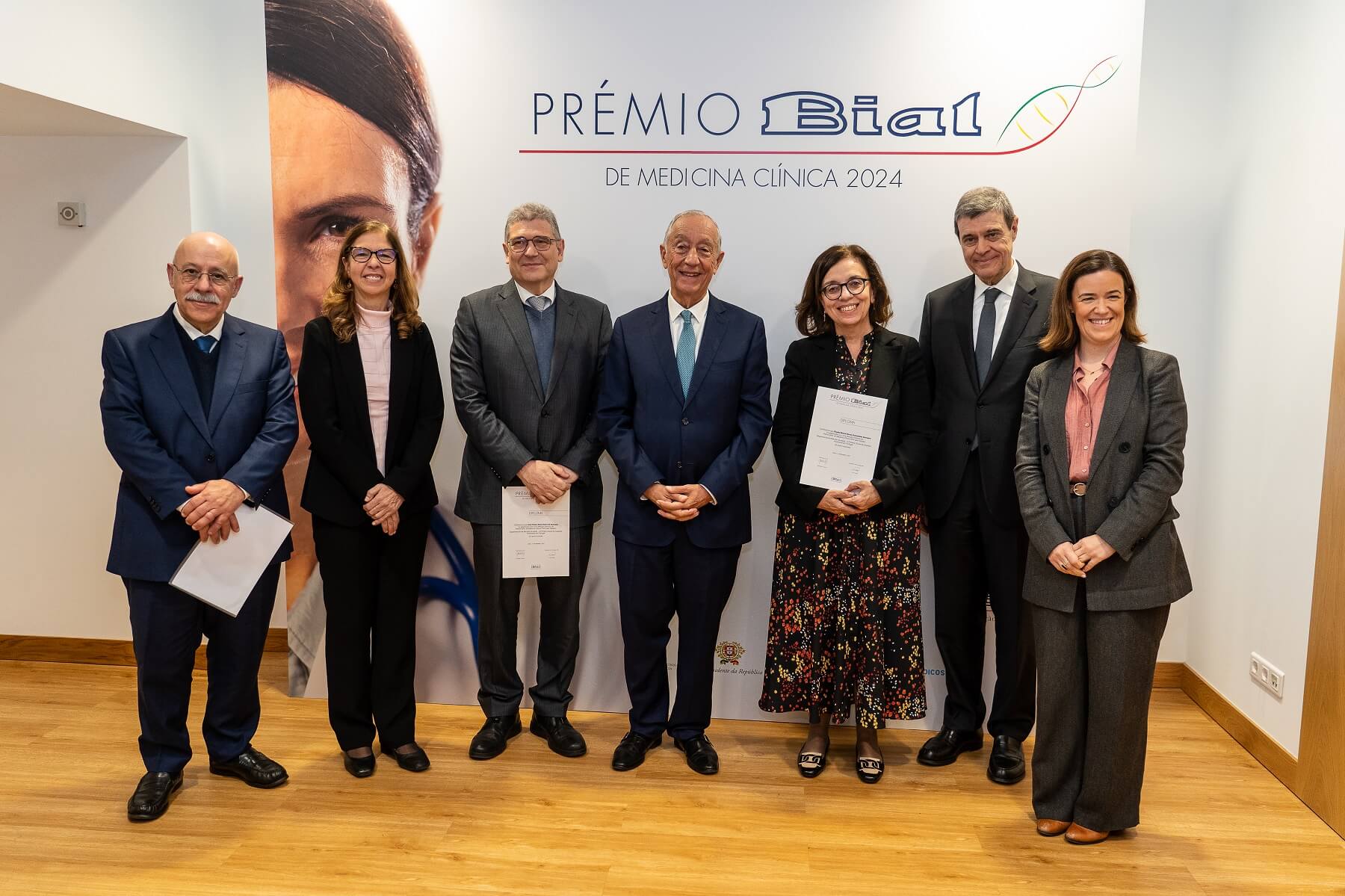
The authors state that maintaining a healthy diet, such as eating fruit, vegetables, and fish, as well as exercising can help protect the eyes. They also point out the habits to avoid, such as smoking, which are linked to the onset of the disease.
“By disseminating information on the risk factors that can be modified, such as smoking and poor diet, and by proposing strategies for early detection of the disease, this work could reduce the number of cases of irreversible visual loss, ease the burden on health services, minimise the costs associated with treating the disease and improve patient’s quality of life”, explains José Paulo Andrade.
The Prémio BIAL de Medicina Clínica seeks to recognise an intellectual, original work in any freely chosen medical topic on clinical practice, which represents work with results of high quality and relevance. Since its creation, the BIAL Award has analysed 720 works and mobilised 1,853 researchers, physicians, and scientists from 21 countries. In 21 editions, it has honoured 111 works by 316 authors, and 43 award-winning works have been published and distributed free of charge to health professionals, totalling more than 326 thousand copies. The next edition of the Prémio BIAL de Medicina Clínica will take place in 2026.





































































